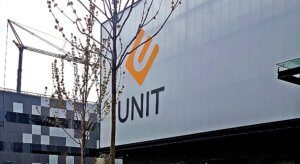
ING Bank N.V. (ING), as a mandated lead arranger and bookrunner, a syndicate of European commercial banks, and the European Bank for Reconstruction and Development (EBRD) have signed an agreement on providing a $80 million syndicated term loan for Mykolaiv-based Nibulon. The assets will be used to finance the company’s working capital needs associated with purchase of commodities in Ukraine and exports to the global market, according to a reports on the company’s website.
The loan tenor is three years.
Nibulon was established in 1991. It is one of the largest operators in the grain market of the country. It has elevators with a total capacity of about 2 million tonnes, as well as its own transshipment terminal with a capacity of 5 million tonnes in Mykolaiv. The company has 11 river terminals on the Dnipro and the Southern Buh, its fleet consists of 67 vessels. Nibulon cultivates 83,000 hectares of farmland. It exports farm produce more than 60 countries. The annual volume of exports exceeds 4.5 million tonnes.

Ukraine should create equal opportunities and access to education for young talents whatever income they can have. Vasyl Khmelnytsky, an entrepreneur and owner of UFuture Investment Group, made this statement in an interview for AIN. According to Mr Khmelnytsky, he is now bringing the most advanced and innovative educational institutions into UNIT.City Innovation Park he created.
“We want to invite as many quality educational institutions as possible here and are ready to offer them favorable conditions. For example, now we are in talks with a school of English from the West. I will lease premises to them at cost price in an effort to bring them in our initiative. After all, it is difficult to become successful today without a good command of English. If you have a good educational project, come to us, we will offer you good conditions,” said Vasyl Khmelnytsky.
He mentioned DTEK Academy as an example, saying that they had a strong methodological basis and expertise. In future, Vasyl Khmelnytsky expects the UNIT Factory educational initiative to expand to have up to 2,500 students.
The entrepreneur is set to build something like a student dormitory in UNIT.City in a move to create comfortable conditions for all students, regardless of the wealth of their families: for young people from small towns who cannot afford to rent expensive housing in the capital city. Those who will not have money even to pay for the dormitory will be able to enjoy a credit line with a very low interest rate of 5%.
At the same time, Vasyl Khmelnytsky reminded that the school would be tuition-free.
Commonly, talented people do not have enough money. Vasyl Khmelnytsky believes that if the tuition is high, the children of rich parents will come to school, without any motivation and ambitions. “If we offer equal conditions for all, we will bring real talents in UNIT.City. These very children will later join businesses based in UNIT.City. Here we have the following business model: the costs do not scare me so much, because I understand the future income from the entire system. This is a long game, and the return will not come immediately, but in a few years,” Vasyl Khmelnytsky underscored.
According to the businessman, students having a strong academic performance will have high chances to find a job in companies based in UNIT.City. However, no one will force them to work for one or another company. Mr Khmelnytsky said they would be able to choose either to work for a UNIT.City resident company or land a job outside the park.
Vasyl Khmelnytsky emphasized the role of the educational environment in UNIT.City, saying it creates added value. “People sometimes tell me that it is a little expensive here. Indeed, somewhere you can find a price, which is lower by $2 per sq m, but here we have students, schools, universities, other companies, educational programs, accelerators, laboratories, security and so on. If you find no point in this, there is no reason to spend $2 more in this case. However, the bonuses offered by UNIT.City will help you become better, that is why the price is higher,” he said, summing up the project.

DTEK Energy plans to increase production of coal in Ukraine by 5-7% in 2018 compared to 2017, 24-24.6 million tonnes, The company’s CEO Dmytro Sakharuk told journalists. “This year, we plan to produce more than 24 million tonnes of rough coal,” he said.
According to him, coal imports by DTEK in 2018 are expected at up to 2 million tonnes, including about 1 million tonnes from DTEK’s anthracite mines in Russia’s Rostov region for Luhanska thermal power plant, and another 1 million tonnes for Kryvorizka thermal power plant, which also consumes anthracite.
In addition, DTEK intends to export about 5 billion kWh of electricity in 2018, which corresponds to the figures of the previous year.
DTEK Energy, which was created in 2005 as part of Rinat Akhmetov’s System Capital Management, is a key player in the Ukrainian coal industry. DTEK Energy assets are represented by 16 mines and 5 coal-processing plants. Total coal production in 2016 amounted to 29.2 million tonnes, accounting for about 70% of total production in Ukraine.

Risoil S.A. increased grain transshipment by 20,000 tonnes of grain per day, to 1.64 million tonnes, in the 2017/2018 marketing year (July 2017 through June 2018).
“Risoil increased oil transshipment by 11% as compared to last season. As for grain and products of processing, the results stably exceeded planned 1.5 million tonnes. The group transshipped 1.62 million tonnes of grain plus products of processing in the 2016/2017 season and 1.64 million tonnes in the 2017/2018 MY,” the group said in a post on its Facebook page.
Risoil S.A. was established in Geneva (Switzerland) in 2000. Its core business is logistics of oil, bulk and general cargo in the ports of the Black Sea, sale and production of vegetable oils, trade in grain and oilseeds in containers, storage and processing of agro-industrial products.
Risoil Terminal in Chornomorsk seaport was commissioned in 2016.

Some 4.6% of foreign direct investment (FDI) companies in Ukraine produce 34.9% of gross value added (GVA), according to a survey conducted by the German Advisory Group and Ukraine’s Institute for Economic Research and Policy Consulting. “Some 4.6% of FDI companies in the non-financial sector employ 20.4% of salaried employees and produce 34.9% of GVA,” expert of the German Advisory Group Ukraine David Saha said while presenting the survey during a press conference hosted by the Interfax-Ukraine News Agency on July 12, 2018.
He added that the average monthly labor costs per employee of FDI companies were 57% higher than that of domestically owned enterprises.
“With the help of the IMF methodology we evaluated the amount of foreign investment in Ukraine at $27.5 billion in 2016. This is $650 per Ukrainian individual, while in Belarus this index is $2,000 and in Estonia – $14,000,” he said.
In turn, Acting Finance Minister of Ukraine Oksana Markarova noted that the government expected intensification of foreign investment due to privatization as well as improvement of business climate for both foreign and Ukrainian companies.
“We’ve managed to return Ukraine to the investment map over the recent year and a half. Numerous global brands, which earlier were just scrutinizing Ukraine, either have entered Ukraine, like Fujikura or a cluster of German companies in western Ukraine, or have announced about their plans to enter the Ukrainian market,” Markarova said.